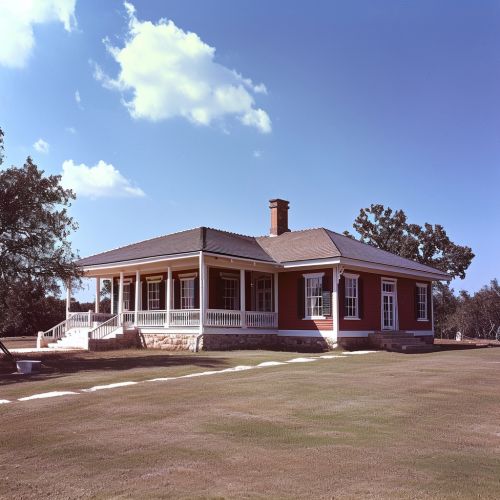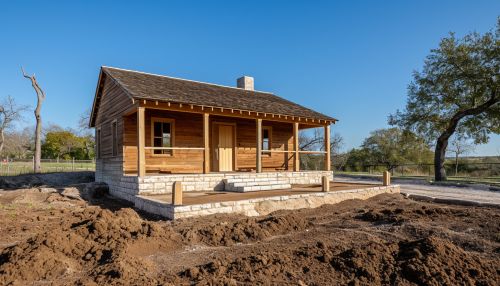Lyndon B. Johnson
Early Life
Lyndon Baines Johnson was born on August 27, 1908, in Stonewall, Texas, to Samuel Ealy Johnson Jr. and Rebekah Baines. Johnson was the oldest of five children. His father, Samuel Ealy Johnson Jr., was a rancher and served five terms in the Texas State Legislature. His mother, Rebekah Baines, was a well-educated woman for her time, having graduated from Baylor University, and was known for her wit and intelligence.


Education
Johnson attended public schools in Johnson City, Texas, before enrolling at Southwest Texas State Teachers College (now Texas State University). He worked his way through school, participated in debate and campus politics, and edited the school newspaper, The College Star.
Early Political Career
In 1931, Johnson campaigned for Texas State Senator Welly Hopkins in his run for Congress. Hopkins recommended him to Congressman Richard M. Kleberg, who hired Johnson as his legislative secretary. Johnson served in this role from 1931 to 1935, a period during which he gained a reputation as a hard-working and efficient staff member.
In 1935, Johnson was appointed head of the Texas National Youth Administration, a New Deal agency focused on providing work and education opportunities for young people. He held this position until 1937, when he successfully ran for Congress, representing Texas's 10th congressional district.
Congressional Career
Johnson served in the House of Representatives from 1937 to 1949. During his tenure, he worked on issues related to rural electrification and public housing. He also served in the Navy during World War II, receiving a Silver Star for his service.
In 1948, Johnson was elected to the Senate, where he quickly rose through the ranks. He was chosen as Senate Majority Whip in 1951, became the youngest ever Senate Minority Leader in 1953, and was elected Senate Majority Leader in 1955.
As Majority Leader, Johnson was known for his domineering personality and the "Johnson Treatment", his aggressive tactics of persuasion in dealing with fellow lawmakers. He passed the first civil rights legislation since Reconstruction, the Civil Rights Act of 1957.
Presidency
Johnson assumed the presidency on November 22, 1963, following the assassination of President John F. Kennedy. He was sworn in aboard Air Force One as it sat on the runway at Love Field in Dallas, Texas.
Johnson's presidency was marked by significant legislative achievements. His "Great Society" program, a series of domestic legislative initiatives, aimed to eliminate poverty and racial injustice. Major laws passed during this time included the Civil Rights Act of 1964, the Voting Rights Act of 1965, and the establishment of Medicare and Medicaid.
However, Johnson's presidency was also marked by the escalation of the Vietnam War, which became increasingly unpopular. Protests against the war, coupled with civil rights unrest, led to a turbulent period in American history.
Johnson did not seek re-election in 1968, and he retired to his Texas ranch, where he died in 1973.
Legacy
Johnson's legacy is a complex one. His domestic policies have had a lasting impact on American society, particularly in the areas of civil rights, education, and healthcare. However, his handling of the Vietnam War remains a subject of controversy and debate.
